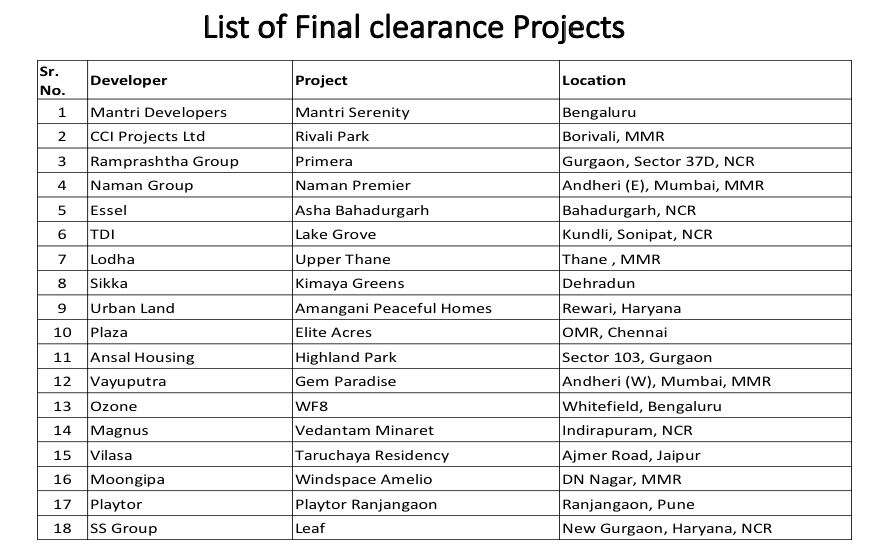The finance minister Nirmala Sitharaman on Thursday was informed that SWAMIH Investment Fund I has so far approved Rs 8,767 crore for 81 stressed residential projects.
Sitharaman was reviewing the performance of Special Window for Affordable and Mid Income Housing (SWAMIH) with secretaries of ministries of finance and senior management team of the State Bank of India, SBI Capital Markets and SBICAPS Ventures (SVL).
The approved fund will enable the completion of almost 60,000 homes across India. These projects are spread across a mix of markets including large cities such as National Capital Region (NCR), Mumbai Metropolitan Region (MMR), Bengaluru, Chennai, Pune and also tier-II locations including Karnal, Panipat, Lucknow, Surat, Dehradun, Kota, Nagpur, Jaipur, Nashik, Vizag, Chandigarh, among others.
Amongst these projects, investments in 18 projects have been given final clearance and disbursement is at various stages across 7 residential projects.

Applications from 353 stressed projects are under examination for provision of assistance.
Additionally, the fund is actively evaluating options to provide relief to about 15,000 home buyers in certain long-stalled projects which are pending before the Supreme Court for resolution.
The recent initiative by the fund to reduce the cost of capital to 12% has resulted in an increase in the number of projects that meet the funding criteria laid out under the Special Window.
The finance minister suggested that both private and public Banks, NBFCs and HFCs should see the Special Window as a stakeholder and increase support early completion of stressed projects.
The control mechanisms are being being built in by the fund to monitor project progress and ensure prudent utilisation by calibrating investments in line with project progress. These steps would also bring in greater transparency in the sector in terms of accountability of project cashflows and eliminating diversion of funds.




